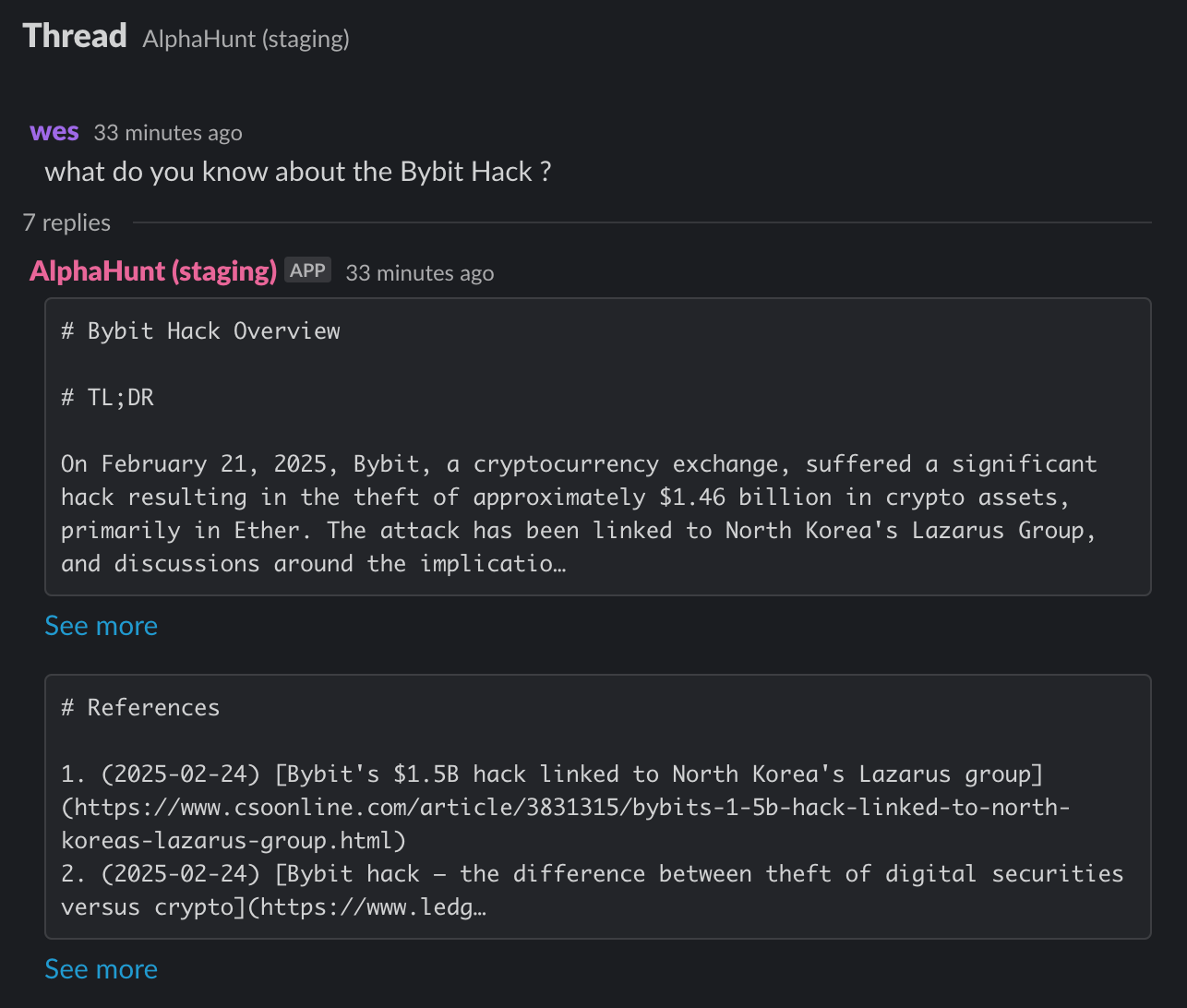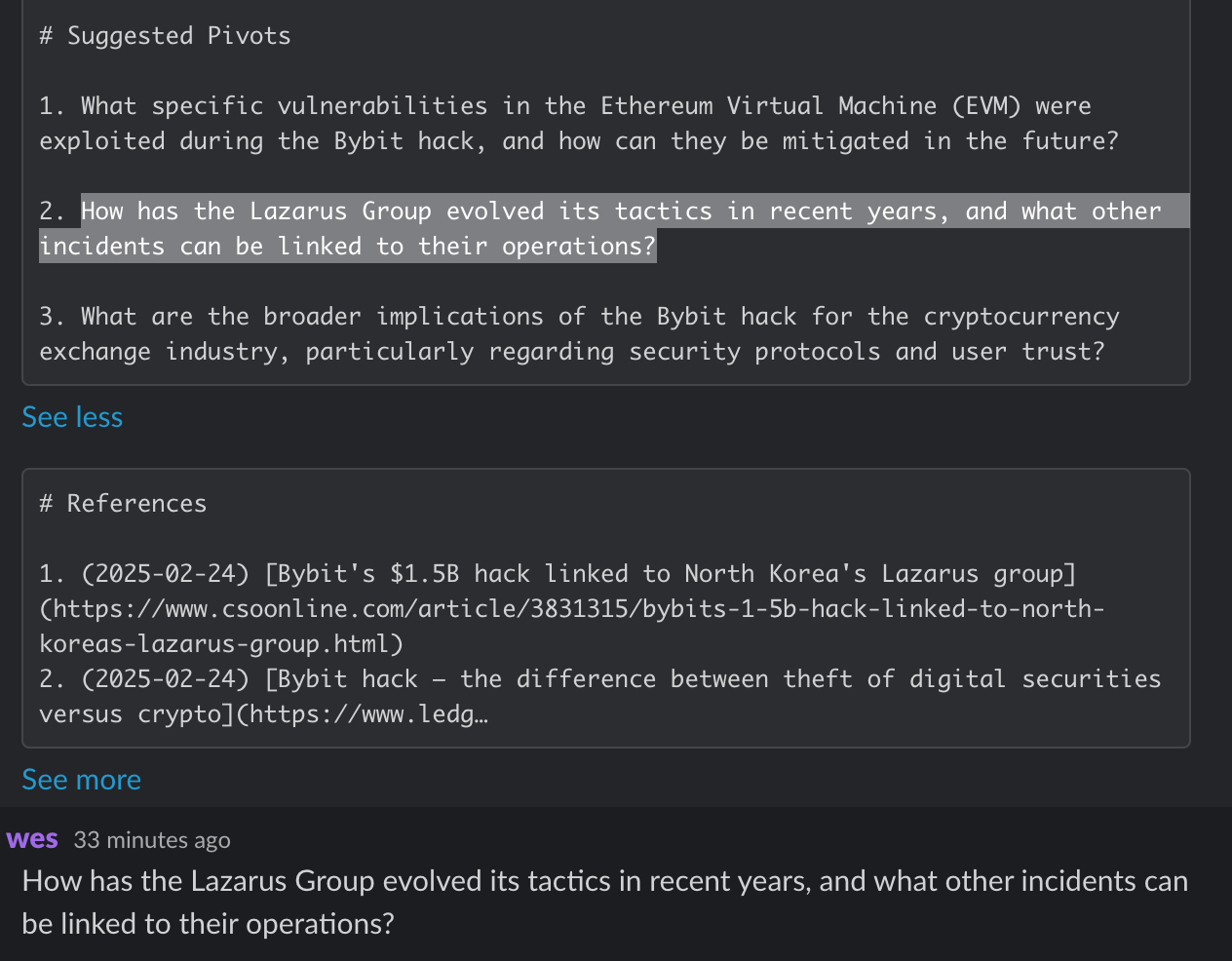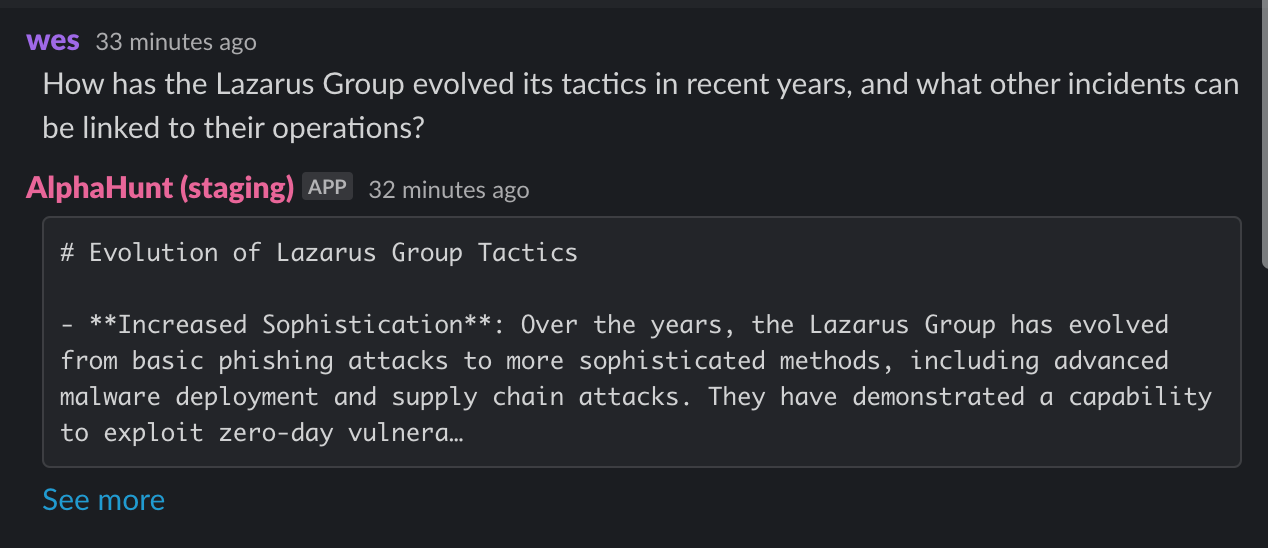Lazarus Group's Cryptocurrency Heists: Bybit, BingX, and Phemex Under Siege
The Lazarus Group has intensified its focus on cryptocurrency exchanges, executing high-profile hacks on Bybit...




EDITOR'S NOTE: I'm testing the next generation of the AlphaHunt- the research goes a bit deeper, a bit more directed and a bit more "peer" reviewed. The layout may still need some work... feedback welcome (just hit reply! :))
Thanks for taking the time to subscribe and read these, if they bring you value, just hit reply and let me know!
TL;DR
Key Points
-
- The Lazarus Group executed a $1.5 billion Ethereum theft from Bybit using social engineering and exploiting transaction signing vulnerabilities.
- Implement robust multi-factor authentication and regularly update transaction signing processes.
-
- Similar tactics were used in the BingX and Phemex hacks, involving phishing campaigns to access user credentials.
- Establish continuous monitoring for unusual transactions and conduct regular security training.
-
- The group compromised open-source projects to plant backdoors, targeting cryptocurrency applications.
- Monitor and verify open-source software integrity and implement application whitelisting.
-
- A cross-platform JavaScript stealer was used to target crypto wallets via fake job offers on LinkedIn.
- Enhance security awareness training and utilize endpoint detection and response solutions.
-
- Malware was embedded in open-source platforms to steal cryptocurrency and sensitive data.
- Conduct regular code reviews and establish security vetting processes for open-source software.
Summary
The Lazarus Group has intensified its focus on cryptocurrency exchanges, executing high-profile hacks on Bybit, BingX, and Phemex. These attacks involved sophisticated social engineering tactics and exploitation of security vulnerabilities, resulting in significant financial losses. The group's strategy includes phishing campaigns, supply chain attacks through open-source projects, and the use of malware like the cross-platform JavaScript stealer.
To counter these threats, organizations are advised to implement multi-factor authentication, enhance transaction monitoring, and conduct comprehensive security training. Additionally, verifying the integrity of open-source software and employing endpoint detection solutions are critical measures. The evolving tactics of the Lazarus Group, including the potential use of AI in future attacks, underscore the need for advanced threat detection technologies and collaborative defense strategies with cybersecurity firms and government agencies.
Breaches
- 2025-02-21 - Bybit Hack
The Bybit hack, resulting in the theft of approximately $1.5 billion worth of Ethereum, was executed by the Lazarus Group through social engineering and exploiting vulnerabilities in Bybit's security architecture. The attackers used a technique known as "blind signing," allowing them to bypass security checks and authorize transactions without the user's explicit consent. This vulnerability was linked to Bybit's transaction signing process, which did not adequately verify the legitimacy of requests.
Actionable Takeaways:
- Implement robust multi-factor authentication (MFA) methods, such as hardware tokens or biometric verification, to enhance account security.
- Regularly review and update transaction signing processes to ensure they include comprehensive validation checks.
- 2025-02-21 - BingX and Phemex Hacks
Investigations revealed that the hacks on BingX and Phemex were also linked to the Lazarus Group, utilizing similar tactics as the Bybit incident. The group employed phishing campaigns to gain access to user credentials and subsequently exploited vulnerabilities in the exchanges' security protocols to execute unauthorized transactions.
Actionable Takeaways:
- Establish a continuous monitoring system for unusual transaction patterns to detect potential breaches early.
- Conduct regular security training for employees and users to recognize phishing attempts and suspicious activities.
- 2025-01-29 - Supply Chain Attacks
The Lazarus Group has been reported to compromise open-source projects to plant backdoors and steal credentials. This tactic involves embedding malicious code within legitimate software, which can then be distributed to unsuspecting users. This method has been particularly effective in targeting cryptocurrency-related applications.
Actionable Takeaways:
- Monitor and verify the integrity of open-source software before deployment.
- Implement application whitelisting to control which software can run on organizational systems.
- 2025-02-03 - Cross-Platform JavaScript Stealer
A new campaign by the Lazarus Group involved a cross-platform JavaScript stealer that targets crypto wallets. The group has been using fake job offers on LinkedIn to distribute this malware, showcasing their evolving tactics in social engineering.
Actionable Takeaways:
- Enhance security awareness training for employees, focusing on social engineering tactics.
- Utilize endpoint detection and response (EDR) solutions to identify and mitigate malware threats.
- 2025-01-29 - Malware in Open-Source Projects
The Lazarus Group has been identified as embedding malware in GitHub and other open-source platforms to steal cryptocurrency and sensitive data. This tactic exploits the trust users place in open-source software, making it a significant threat to developers and organizations alike.
Actionable Takeaways:
- Conduct regular code reviews and security assessments of third-party libraries and dependencies.
- Establish a policy for using open-source software that includes security vetting processes.
Recommendations, Actions, Suggested Pivots, Forecasts and Next Steps..
(Subscribers Only)





